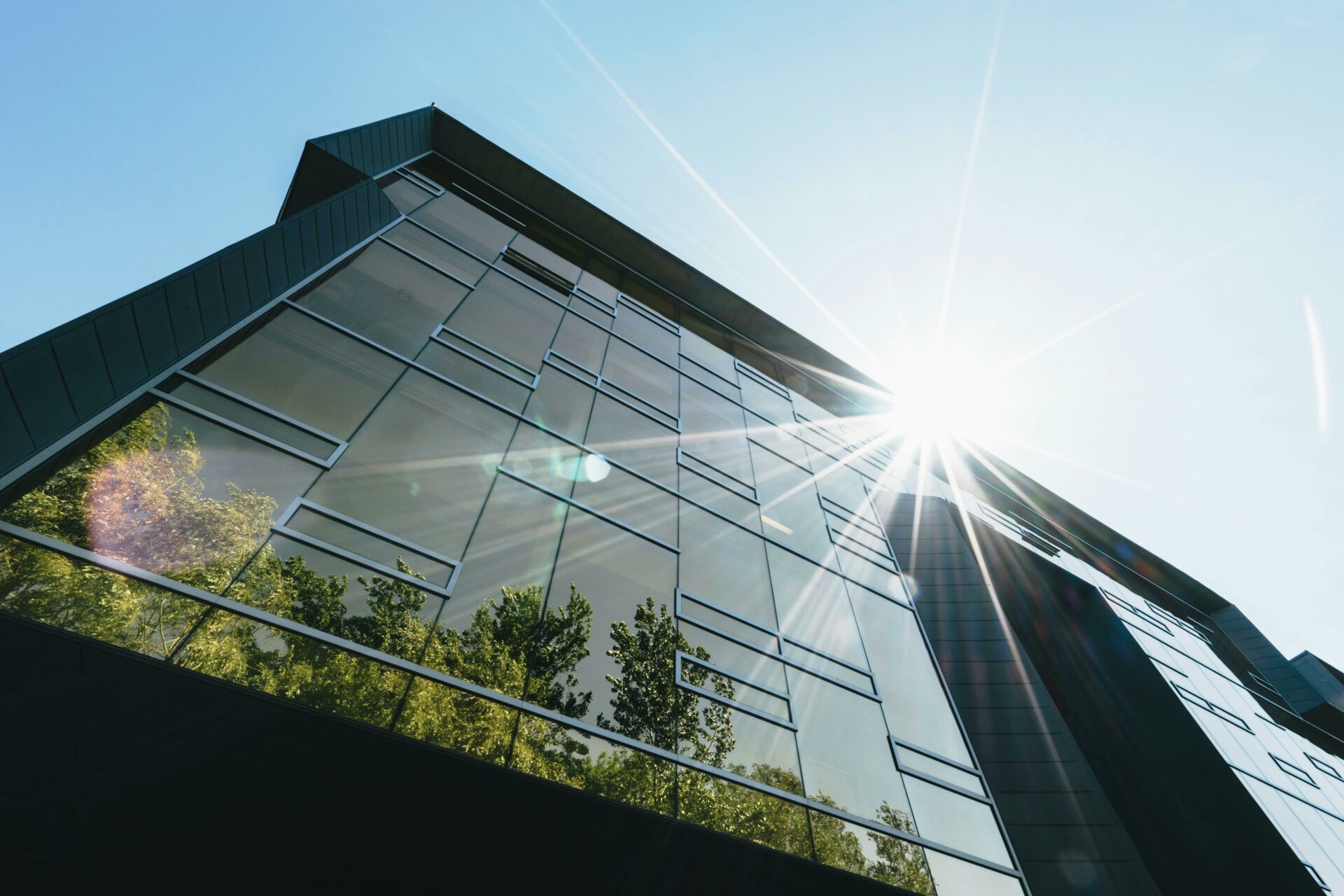Case Studies
Building a cleaner, just future with Shift Zero

At The Russell Family Foundation (TRFF), allocating grant capital is one part of our approach to advancing climate solutions across all aspects of our work, which also includes investment, collaboration and convening. Our grants support many organizations dedicated to responding to critical climate issues, and many who are driving community-based change toward a sustainable future.
Moving toward zero carbon buildings for all in Washington State
How we build and power our homes and buildings is crucial to addressing the climate crisis and supporting our communities. In fact, carbon emissions from buildings represent more than a quarter of Washington state’s total climate pollution. Energy-efficient, low-carbon alternatives can drastically reduce emissions from buildings, as well as improve indoor air quality and reduce pollution-related illnesses, which disproportionately affect marginalized and low-income communities. Reducing emissions in buildings, while also focusing on equity and affordability, is a challenge that the Shift Zero alliance is tackling head on.
Two of TRFF’s grantees are members of this alliance of more than 55 green building, energy efficiency, and climate action organizations, united by a commitment to transition homes and buildings away from fossil fuels. Drawing on the expertise of building industry leaders, the alliance advocates for a just transition to zero-carbon buildings for all in Washington State and supports its members through its network and resources. As Rachel Koller, Managing Director of Shift Zero explains, “there is no way to address the climate crisis without a strategy for moving homes and buildings off of fossil fuels and harnessing energy efficiency. Building decarbonization projects are an engine for a green economy, and if we do it right, a more equitable society.”
Spark Northwest
One of TRFF’s grantees and member of Shift Zero, Spark Northwest, focuses on a clean energy transition that empowers communities on the front lines of the climate crisis by operating at the intersection of policy advocacy and project-based work with these communities. The alliance provides a convening space for Spark Northwest to strategize, share information, and build consensus around building decarbonization initiatives. Monthly subgroup meetings are important spaces where their policy manager collaborates with dozens of allies to design and plan policy actions.
Spark Northwest also contributes to Shift Zero’s weatherization workgroup, which aims to make low-income Washingtonians’ homes safer, healthier and more energy efficient. Andrea Axel, Executive Director of Spark Northwest shared, “grant capital from TRFF has made it possible for our policy manager to participate in Shift Zero meetings and activities. Having flexible funding from sources like TRFF allows Spark Northwest to pursue innovative program and policy solutions that are responsive to the current needs of our community partners.”
The Clean Energy Transition Institute
Another TRFF grantee and member of Shift Zero, the Clean Energy Transition Institute (CETI), is similarly dedicated to promoting an equitable clean energy transition, and provides essential research, data analysis, and technical expertise to Shift Zero and its members to support with the decarbonization and emissions reduction efforts of the alliance. CETI’s contributions are crucial in helping members interpret the complexities of clean energy transitions, particularly in the building sector, through infographics, detailed reports, and interactive tools that illustrate what the data means. For example, CETI’s Northwest Clean Energy Atlas and detailed decarbonization analysis helps to facilitate informed decision-making and strategic planning for the alliance’s members.
Eileen V. Quigley, Executive Director of CETI shared, “We are a non-partisan, non-profit organization providing a wide range of research, analysis and guidance to accelerate an equitable clean energy transition in the Northwest. We aim to educate and then move forward a broad audience of policy makers, businesses, utilities, advocates, and city, county and state agencies.”
City of Tacoma
The collaborative efforts of the alliance toward decarbonization of the built environment are already having positive impacts across Washington. For the City of Tacoma, partnership with Shift Zero has been transformative. Beth Jarot, Green Building Specialist at the City shared, “as our work on building decarbonization through electrification has evolved, Shift Zero meetings, resources and networking opportunities have shaped our policies and programming on a local level. The City regularly counts on Shift Zero as a go-to resource for legislative updates, advice on building codes, technical and financial tools and training.”
Power of finance and grantmaking
Investment is essential to scale up clean energy upgrades to our homes and buildings. Government funding, accelerated by initiatives like the federal Inflation Reduction Act and Washington’s Climate Commitment Act, is injecting millions of dollars into climate action, particularly in electrification and energy efficiency. But this isn’t enough on its own; private finance is also needed. Grants are another tool that can help mobilize these investments and accelerate the successful implementation of building decarbonization programs. Rachel Koller explained that, “philanthropy is the fuel for nonprofits working on climate action, and that fuel needs to be on the path to fossil free. Otherwise, we are working at cross purposes.”
The efforts of the Shift Zero alliance and its partnerships are creating real-world impact across Washington state, leveraging collective expertise, advocacy and philanthropic support as the state moves toward a zero-carbon future in the building sector. TRFF’s grantmaking is able to broaden the impact that organizations like Spark Northwest and CETI can have on their communities and environments as part of this work.
At TRFF, we understand the importance of grantmaking as a valuable tool to empower organizations in driving meaningful change and equitable climate solutions within our communities. We are committed to directing our grants toward people and places to advance environmental sustainability and address the climate crisis.